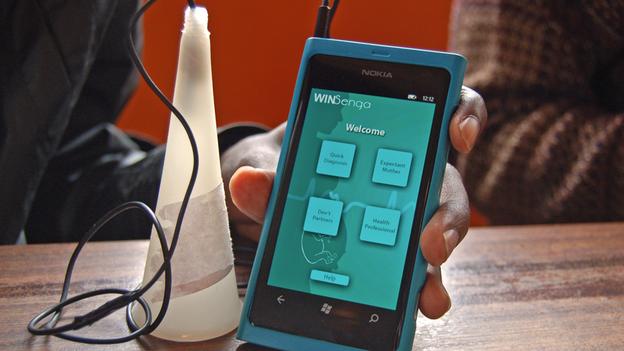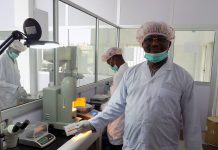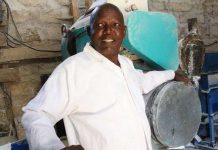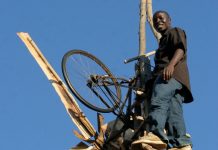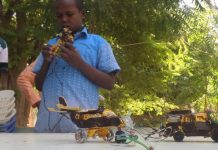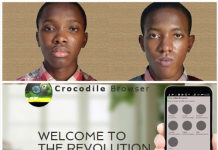(A column highlighting scientific, technological, engineering, and design innovation in Africa.)
Ugandans Joshua Okello and Tushaba Aaron, founders of Cipher256 Co. Ltd., developed WinSenga mobile technology as a low-cost way to monitor the heart rate of unborn babies.
Deployed on a smartphone, WinSenga captures the heart beat sounds of the fetus, provides a diagnosis, and sends it to the expectant mother in a text message. The information can also be uploaded to cloud storage.
WinSenga comes in the form of a kit comprising a Senga horn, which is am enhanced Pinard horn (the tool midwives have used for more than 100 years to listen to the fetal heart rate), connected to a phone running the WinSenga App. It is used as an alternative to standard antenatal diagnosis equipment, such as the ultrasound scan, which most community health centers cannot afford.
With WinSenga, the Pinard horn, or fetoscope, is enhanced with a microphone, which the midwife plugs into a smartphone running the WinSenga application. The midwife places the horn on the mother’s abdomen and taps the phone to begin recording the fetal heart sounds. A diagnosis is made from the sounds, which the midwife and mother receive, along with suggested actions that can be taken.
Cipher256 has two consulting medical doctors and a leading obstetrician/gynecologist on its team.
“We’ve looked at an age-old problem in a unique and innovative way,” Okello says. “With WinSenga, even the less experienced midwife in rural areas would be able to offer mothers quality antenatal care.”
Prior to WinSenga, the midwife had to locate the fetal heart by pressing on the mother’s abdomen, place the Pinard horn on the location, and lean in to listen to the heartbeat with her ear to the other end of the horn.
Okello and Aaron studied at Makerere University in Uganda. Both volunteer at the Microsoft Innovation Center. They came up with the idea of WinSenga in January 2012 and rolled out the first version in May of the same year. With work ongoing on the sixth incarnation, WinSenga 2.0, they have already partnered with the Ministry of Health of Uganda and Mulago Hospital School of Public Health.
“Our dream is to have every mother in the world within 100 meters of quality antenatal care through our Kit,” a statement on their website reads.
WinSenga was one of 10 finalists for the 2014 Innovation Prize for Africa. It won the Microsoft Imagine Cup East and Southern Africa in May 2012; ranked among the top 10 in the Imagine Worldwide Cup Finals in July of the same year, the highest ranking for a team from Africa; and subsequently won an Imagine Cup Grant in December, becoming the first winner ever from sub-Saharan Africa.


